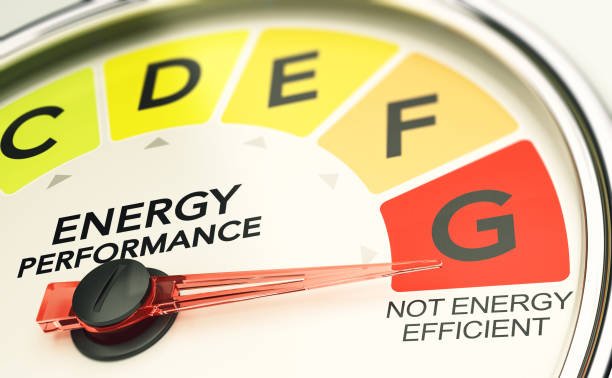What is the legal requirement for an EPC?

An EPC, or Energy Performance Certificate, is a document that shows the energy efficiency of a building. It’s required for any building that is being sold or leased, and it’s important to make sure that the certificate is carried out by a qualified professional.
An EPC must be carried out by a qualified assessor, who will visit the property and assess its energy efficiency. The assessor will then give the property a rating from A to G, with A being the most efficient and G being the least efficient. The certificate will also show how much money could be saved if the property was more energy efficient.
The certificate is valid for 10 years, but it’s important to keep it up to date as the energy efficiency of a property can change over time.
If you’re selling or leasing a property, you’ll need to provide an EPC to the buyer or tenant. It’s also a good idea to get an EPC if you’re planning to make improvements to your property, as it can help you to find out where you could make the biggest savings.
In Scotland, you can search the Scottish Energy Assessor Register. This is a list of all the assessors who are qualified to carry out EPCs in Scotland.
How to get an EPC certificate for your building?
If you’re planning to sell or rent your property, you’ll need an Energy Performance Certificate (EPC). An EPC assesses the energy efficiency of a building. The certificate gives the building a standard energy and carbon dioxide emission efficiency rating from A (very efficient) to G (inefficient).
An EPC is required by law whenever a building is constructed, sold or rented. The certificate is valid for 10 years.
You can get an EPC from a qualified assessor. The assessor will visit your property and compile a report with the building’s energy efficiency rating.
The cost of an EPC depends on the type and size of your property. For a typical three-bedroom house, the average cost is around £60.
How can an EPC certificate help you save money on energy costs?
In general, properties with higher energy efficiency ratings will have lower energy bills, so an EPC can be used as a guide to help you save money on your energy costs. Here are some tips on how to use your EPC to save money on your energy bills:
Tips for Save Money
- Look for properties with high energy efficiency ratings: When searching for a new home, look for properties with high EPC ratings. These properties will typically have lower energy bills, so you can save money on your energy costs by choosing a more efficient home.
- Make energy-efficient improvements to your home: If your home has a low EPC rating, you can make energy-efficient improvements to boost its rating and save money on your energy bills. Some simple improvements that can make a big difference include sealing drafty windows and doors, adding insulation, and upgrading to energy-efficient appliances.
- Choose an energy-efficient mortgage: When financing a home purchase, choose an energy-efficient mortgage (EEM) that offers lower interest rates for properties with high EPC Register Paisley. This type of mortgage can help you save money on your monthly payments and also make it easier to finance energy-efficient improvements to your home.
- Use energy-efficient products and appliances: When shopping for new appliances or other products for your home, look for the ENERGY STAR® label to find the most energy-efficient options. These products can help you save money on your energy bills by using less energy than older, less efficient models.
- Take advantage of government incentives: The government offers a variety of incentive programs to encourage homeowners to make energy-efficient improvements to their homes. These programs can help you save money on the cost of materials and labor for approved energy-efficiency upgrades. Check with your local utility company or the Department of Energy’s Database of State Incentives for Renewables & Efficiency (DSIRE) to find incentives in your area.
What are the new EPC rules?
As of March 27, 2017, the European Patent Convention (EPC) has been revised. The EPC is an international treaty that governs the granting of patents in Europe. The revision includes several changes that are intended to streamline and simplify the patenting process.
One notable change is the elimination of the requirement for a “search report.” Previously, applicants were required to submit a search report along with their application in order to demonstrate. Their invention was new and had not been previously patented.
Under the new rules, this requirement has been eliminated. Instead, applicants will only need to provide a “declaration of novelty and inventive step.”
Another significant change is the introduction of a “unitary patent” system. Previously, patents granted by the European Patent Office (EPO) were only valid in the countries where they were registered.
The unitary patent system will create a single patent that is valid in all participating countries. This will simplify the process of obtaining and enforcing patents in Europe.
The revisions to the EPC are intended to make the patenting process simpler and more efficient. This should help to encourage innovation and spur economic growth in Europe.
Conclusion
You can get an EPC certificate for your building by hiring a professional energy assessor. An EPC certificate can help you save money on your energy costs by showing you.



![Photo of [streams]: Palmer Ridge vs Lewis-Palmer Live free HS Football & REsults 09/09/2022](https://blogspinners.com/wp-content/uploads/2022/09/080222-HEAT-HS-FOOTBALL-PRACTICE-QT-9P-PKG_00.00.12.16-1-390x220.webp)

